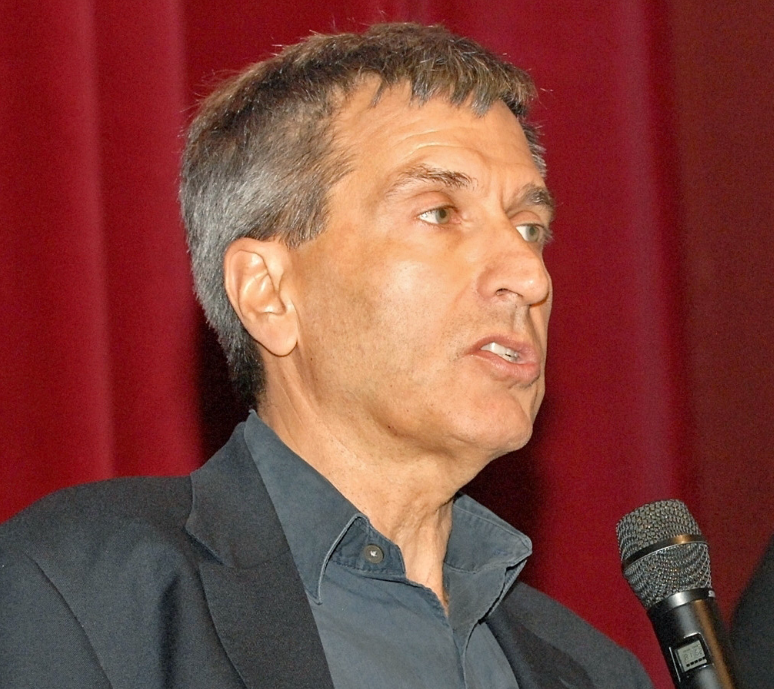Nicholas Meyer discusses the idea for his novel The Seven-Per-Cent Solution. (Audio by Justus Flair)
Nicholas Meyer is not really a Star Trek person.
To each his own, but it is a bit odd; Meyer wrote three Star Trek films (The Wrath of Khan, The Voyage Home, and The Undiscovered Country) and directed two (The Wrath of Khan and The Undiscovered Country). He’d never seen the television series but liked “the idea of directing a rocket-ship movie.”
He loves them, but the Star Treks were merely a few in the multitude for the 1968 University of Iowa graduate (and DI alum). He has worked on dozens of films, TV movies, and series as both a writer and director. He’s written eight books, including The Seven-Per-Cent Solution, a Sherlock Holmes tale. His screenplay adaptation earned an Academy Award nomination.
Time After Time, his first film, released in 1979, gets the honor of being his most fun.
“The movie came out so well that I sort of learned all the wrong lessons from it,” Meyer said. “I thought, ‘Well, this is easy. Making a movie is easy.’ My luck was extraordinary.”
The process of creating Time After Time began more than 20 years before its release, one could argue, when an 8- or 9-year-old Meyer saw his first movie, The Beggar’s Opera.
“I ran out of the theater screaming,” he said. “Later, I wanted to go back and sort of couldn’t get enough of it. That began my love affair with movies.”
The love carried him to a theater for Michael Todd’s Around the World in 80 Days on his 11th birthday.
“It was the most wonderful thing I’d ever seen in my life — my short life,” he said in his slow, lethargic voice.
Meyer got a program at the movie. It cost $2. He still has it.
“In the book was an article called ‘You, too, can make a motion picture. No previous experience necessary,’ ” he said.
It was sarcastic, he said, but he didn’t get it. So he asked his father to help him make a movie. What movie? Around the World in 80 Days, of course.
“My father, for reasons that are probably complicated, but also wonderful, agreed to help me with this,” he said.
For five years, they shot the film on an 8-mm camera. Weekends, school vacations, and holidays were devoted to making movie magic.
“A lot of the times, being as I was a teenager, we weren’t getting along very well,” he said. “But not when we made the movie. When we made the movie, it was all right.”
He kept making movies. Things kept being all right.
When he reached senior year of high school, Meyer needed more, needed to get better. He and his adviser made a list of all the things he wanted out of a college: a good liberal-arts education, theater, film, writing.
The list came down to one school. By the process of elimination, he ended up at the UI.
“For better or worse, I consider myself a complete product of this university,” Meyer said.
He entered as a major in theatre and filmmaking.
“I thought I wanted to be an actor, and then I found out I was a bad actor,” Meyer said.
A director’s constant corrections let Meyer in on the secret of his shabby acting. Now he needed a new career path.
“[The director’s] got a cup of coffee in his hand, and I’m up here being yelled at,” he said. “I wanna be where the coffee is. So I became a director.”
Directing was an conscious goal, he said, writing an unconscious one.
“I’d never been very introspective about [writing],” he said. “It was just a reflex: Grab a pen, calm yourself with words.
“I think I was doing things right by intuition. If you are Shakespeare, you don’t need to go to writing school. But if it was wrong and didn’t work, I had no analytic ability to dissect, to figure out what was wrong and how to fix it.”
He picked up that talent and some others, all a means to tell stories.
For Meyer, it’s all about the stories.



